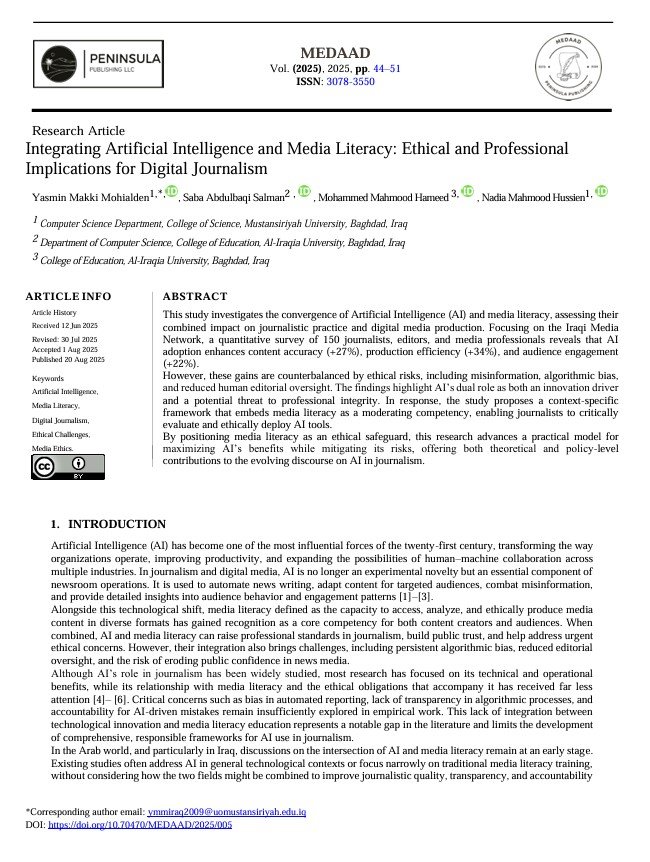Integrating Artificial Intelligence and Media Literacy: Ethical and Professional Implications for Digital Journalism
Main Article Content
Abstract
This study investigates the convergence of Artificial Intelligence (AI) and media literacy, assessing their combined impact on journalistic practice and digital media production. Focusing on the Iraqi Media Network, a quantitative survey of 150 journalists, editors, and media professionals reveals that AI adoption enhances content accuracy (+27%), production efficiency (+34%), and audience engagement (+22%).
However, these gains are counterbalanced by ethical risks, including misinformation, algorithmic bias, and reduced human editorial oversight. The findings highlight AI’s dual role as both an innovation driver and a potential threat to professional integrity. In response, the study proposes a context-specific framework that embeds media literacy as a moderating competency, enabling journalists to critically evaluate and ethically deploy AI tools.
By positioning media literacy as an ethical safeguard, this research advances a practical model for maximizing AI’s benefits while mitigating its risks, offering both theoretical and policy-level contributions to the evolving discourse on AI in journalism.
Article Details

This work is licensed under a Creative Commons Attribution 4.0 International License.
